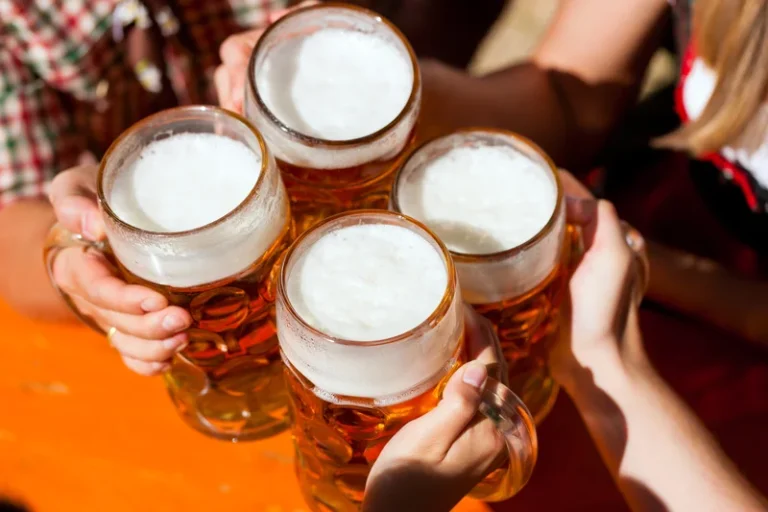
That’s true, in large part, because of the potential effects of alcohol withdrawal. You will receive withdrawal support while in your detox program, but your doctor may recommend taking additional steps. A variety of natural methods may make it easier for you to cope with the effects of your withdrawal symptoms. The SDT framework described above is supported by meta-analytic evidence for describing and changing health-promoting behaviors.

How Ayurveda Helps Us Navigate Modern Life
Harnessing the power of ashwagandha, you can fortify your holistic alcohol addiction treatment by alleviating stress and promoting emotional balance. This adaptogenic herb has been used for centuries in Ayurvedic medicine to combat anxiety and fatigue, making it an invaluable ally in your journey towards recovery. Milk thistle, a powerful herb known for its liver-protective properties, plays a pivotal role in holistic alcohol addiction treatment by supporting detoxification and overall liver health.
HISTORY OF TREATMENT FOR ALCOHOL USE DISORDER
Treatment may involve a brief intervention, individual or group counseling, an outpatient program, or a residential inpatient stay. Furthermore, it is important to note that kombucha, although high in probiotics, should be avoided by those in early recovery due to its alcohol content. Even small amounts of alcohol can be triggering for individuals trying to maintain sobriety. https://ecosoberhouse.com/ It is always best to err on the side of caution and prioritize abstinence from alcohol in all its forms. Through the integration of recovery coaching and a comprehensive range of therapeutic modalities, individuals are empowered to address the root causes of addiction, cultivate healthier habits, and forge a path toward lasting sobriety and holistic well-being.
Herbal Remedies
By promoting relaxation and stress reduction, Ashwagandha may support individuals in their journey towards sobriety. Although more research is needed to fully understand the potential benefits of St. John’s Wort in alcoholism recovery, its popularity as an herbal medicine for alcohol abuse continues to grow. The active compounds in St. John’s Wort are believed to have mood-enhancing properties, which could help individuals in their journey towards sobriety.
- Consistent with this proposal, a large body of research has shown that satisfaction of psychological needs is a major contributor to positive behavioral outcomes and well-being across domains and among people of different cultures (Vansteenkiste et al. 2020).
- If approved for use in clinical practice, this medication is still monitored from a safety standpoint, via phase 4 postmarketing surveillance.
- Other less common side effects may include nausea, vomiting, stomachache, headache, and dizziness, although the causal role of acamprosate in giving these side effects is unclear.
- Vitamins are an excellent resource that can help you throughout the withdrawal process.
For example, most of the medication development efforts in past decades have focused on pathways and targets typically related to reward processing and positive reinforcement. Furthermore, it is also becoming more and more apparent that other promising targets may be identified by looking at the brain not as an isolated system but rather as an organ with bidirectional interactions with peripheral systems. Examples of the latter approach include the growing evidence suggesting a potential role of inflammation and neuroinflammation and of the gut-liver-brain axis in the neurobiological mechanisms that regulate the development and/or maintenance of alcohol use disorder (107–109). Moving medications development from phase 1 to phase 2 and 3 trials has also been a difficulty in the field. Meta-analyses and systematic reviews have found that brief interventions, especially those based on the principles of motivational interviewing, are effective in the treatment of alcohol use disorder. Cognitive behavioral treatments can be delivered in individual or group settings and can also be extended to the treatment of families and couples (72, 73).
- If you are struggling with an alcohol or drug abuse problem it is prudent to consult with a mental health provider or an addiction specialist before considering any natural product supplement.
- Recent advances in neuromodulation techniques may also hold promise for the development of novel treatments for alcohol use disorder.
- Thus, NPI-028 has significant effects on alcohol intake without much effect on water and food intake, and tolerance does not readily develop to these effects.
- By integrating such herbs into your recovery plan, you create a harmonious balance, addressing both physical and emotional aspects of addiction.

Furthermore, recent attention has been paid on zonisamide, another anticonvulsant medication, whose pharmacological mechanisms of actions are similar to topiramate but with a better tolerability and safety profile (48). Human laboratory studies (50) and treatment clinical trials (51) have also used a primarily pharmacogenetic approach to testing the efficacy of the antinausea drug ondansetron, a 5HT3 antagonist, in alcohol use disorder. Overall, these studies suggest herbs to curb alcohol cravings a potential role for ondansetron in alcohol use disorder, but only in those individuals with certain variants of the genes encoding the serotonin transporter 5-HTT and the 5-HT3 receptor. The anticonvulsant gabapentin has shown promising results in human laboratory studies and clinical trials (52–54), although a more recent multisite trial with an extended-release formulation of the medication did not have an effect of gabapentin superior to that of a placebo (55).
- And while it’s one thing to triumph over addiction mentally, one must also heal the body in order to prevent or lessen the after-effects of addiction.
- For example, according to SDT, people of all ethnicities and cultures have innate needs for autonomy, competence, and relatedness.
- Food can absorb the alcohol in beverages, so eating before or even while you drink can dampen the effect and may make you want to drink less, says Crews.
- This natural therapy ties into the mind-body connection by helping reduce oxidative stress, thereby promoting mental clarity and emotional stability.
- Previous posts reviewed the evidence for weak electrical current for reducing symptoms of opioid and alcohol withdrawal.
Medications
If you or a loved one struggles with alcohol abuse, please contact our helpline today to learn more about our treatment options. Not only will you develop physical withdrawal symptoms, you may have increased anxiety as well. These natural therapies support your body’s healing, reduce cravings, and promote emotional stability.
Evidence of substantial heterogeneity in baclofen pharmacokinetics among different individuals with alcohol use disorder (41) could explain the variability in the efficacy of baclofen across studies. The appropriate dose of baclofen for use in treatment of alcohol use disorder remains a controversial topic, and a recent international consensus statement highlighted the importance of tailoring doses based on safety, tolerability, and efficacy (40). Alcoholism is a challenging condition, but exploring herbal supplements and natural remedies can be a valuable addition to your recovery journey. Many individuals turn to herbal supplements as a self-treatment option for alcohol dependency, seeking a more holistic approach to their recovery.
- They also contribute to a more balanced emotional state, as reducing inflammation can lead to less discomfort and stress.
- Milk thistle tea is believed to have liver-protective properties, which can be particularly beneficial for individuals with a history of alcohol abuse.
- It aids in detoxification and liver support, while also offering essential nutrients and anti-inflammatory benefits.
- Instead of aiming for complete abstinence, for instance, aim to drink fewer than seven days a week.
- Such a treatment may include pharmacological and/or psychosocial tools, as summarized in the next sections.
- For example, in the context of intervention, researchers may be most interested in reductions in drinking, but there is no validated measure of the self-determination continuum of motivation for reduced drinking.
It’s essential to note that while Ashwagandha shows potential, it is not a substitute for professional help or evidence-based treatments. Alcohol addiction is a complex condition that requires a comprehensive approach, including therapy, support groups, and medical interventions. Consulting with a healthcare professional is crucial before incorporating Ashwagandha or any other herbal supplement into your alcoholism recovery plan. Three herbs are used in Chinese medicine to diminish alcohol craving, lessen alcohol absorption through the gut, or reduce symptoms of withdrawal.

Disulfiram, acamprosate, and naltrexone have been approved for use in Europe and in the United States. Pharmacologically similar to naltrexone, nalmefene was also approved for the treatment of alcohol dependence in Europe in 2013. Nalmefene is a m- and d-opioid receptor antagonist and a partial agonist of the k-opioid receptor (32). Side effects of nalmefene are similar to naltrexone; compared to naltrexone, nalmefene has a longer half-life. Meta-analyses have indicated that nalmefene is effective in reducing heavy drinking days (32). An indirect meta-analysis of these two drugs concluded that nalmefene may be more effective than naltrexone (33), although whether a clinically relevant difference between the two medications really exists is still an open question (34).

